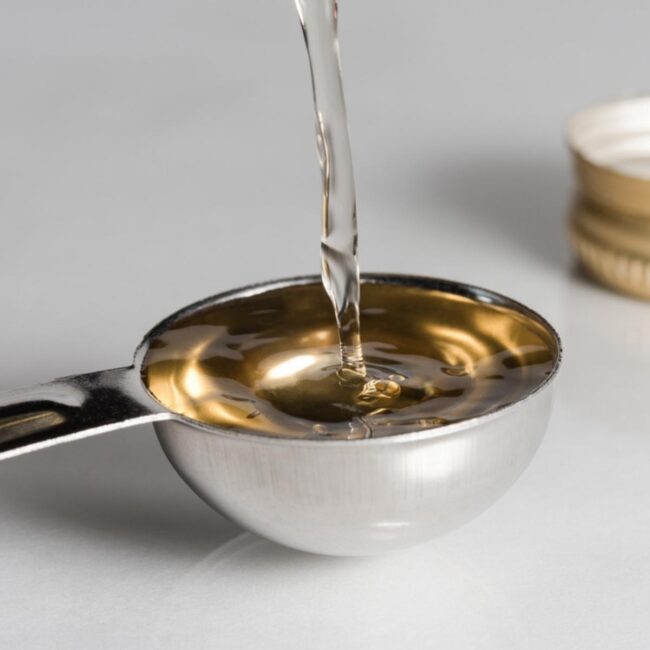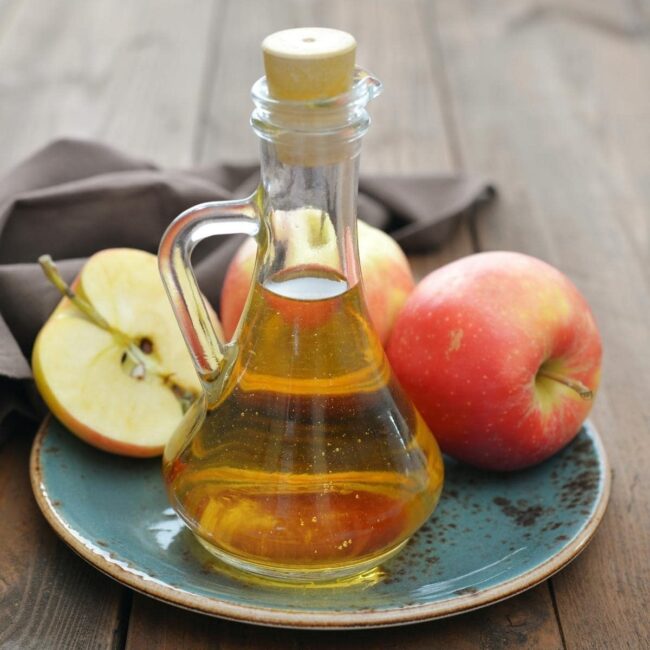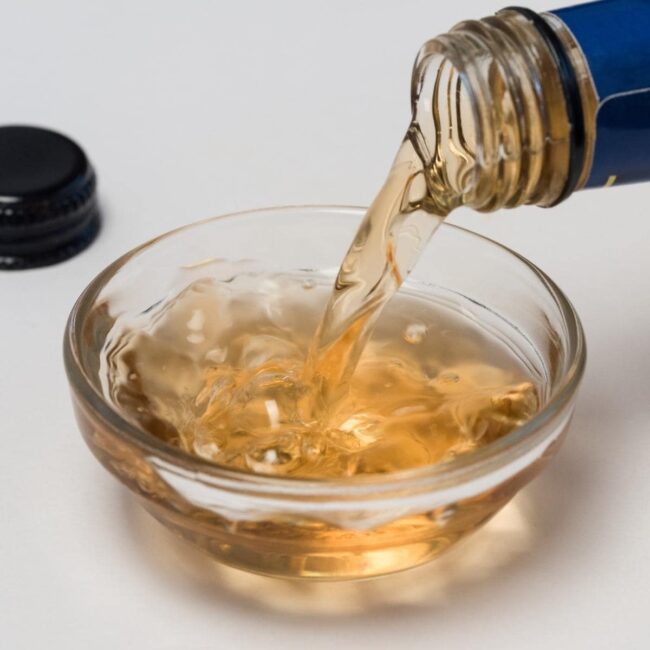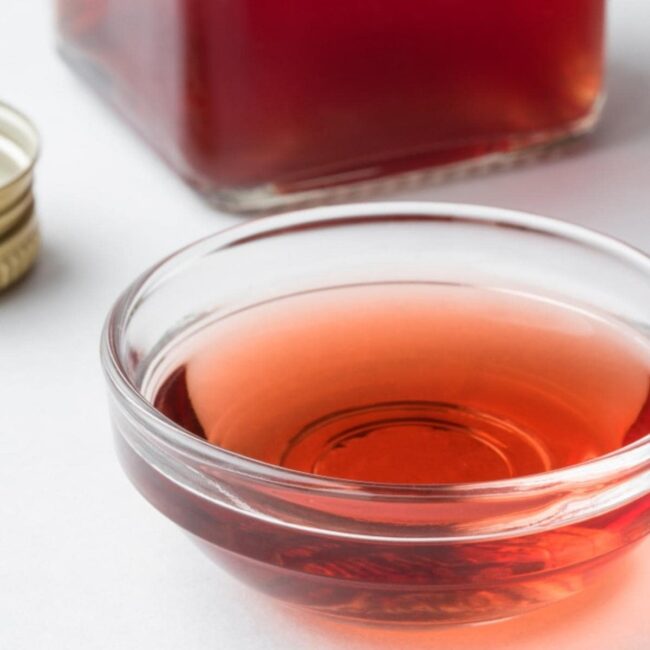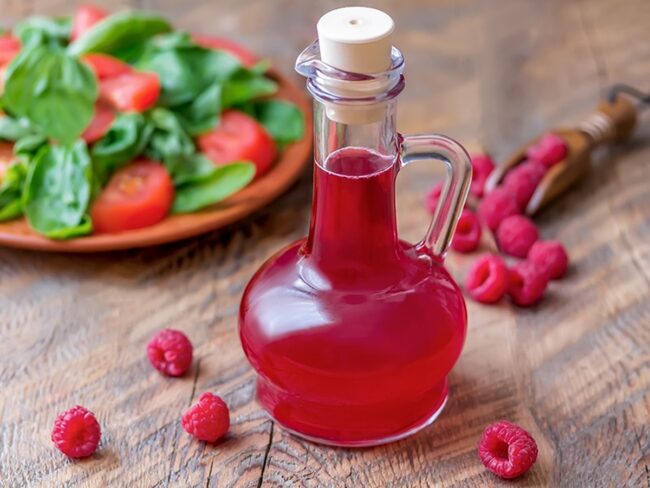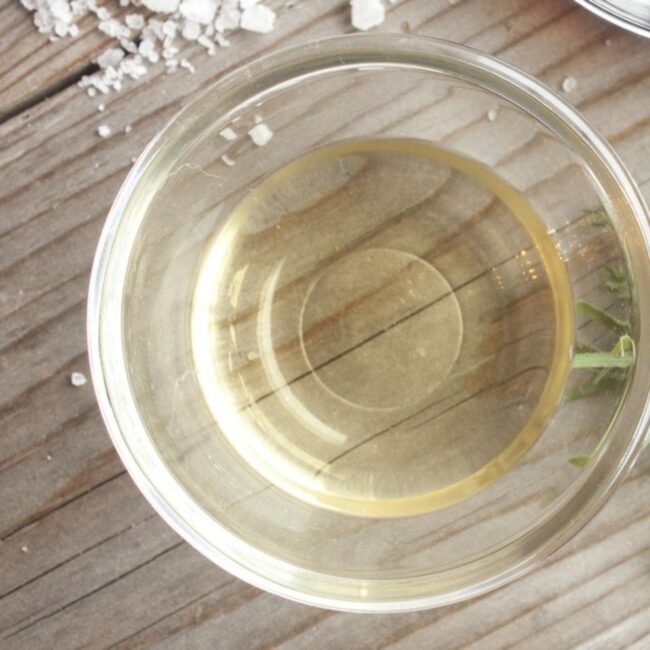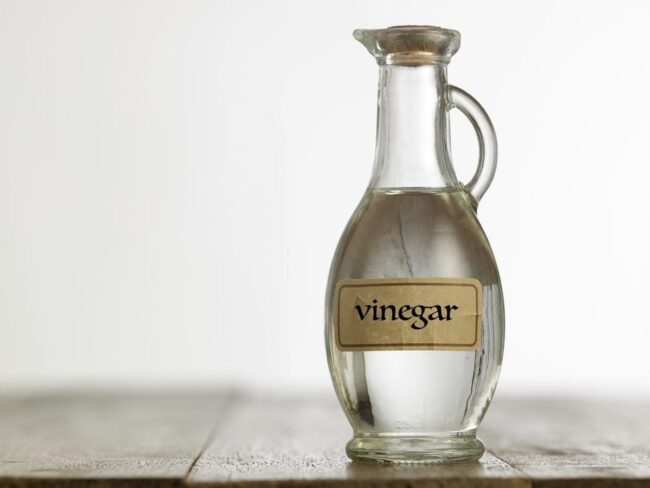10 Light Champagne Vinegar Substitutes for Bright Flavors
Champagne vinegar substitutes offer delicate acidity with light, crisp flavors that enhance dishes. Some options bring mild fruitiness, while others provide a smooth tang without overpowering.
The best choice depends on whether it’s for dressings, marinades, or sauces. A few alternatives blend seamlessly into vinaigrettes, while others complement seafood and poultry dishes.
Certain substitutes keep the subtle elegance of Champagne vinegar intact while adding their own unique touch. These 10 Champagne vinegar replacements will work beautifully in any recipe:
Top Substitutes for Champagne Vinegar
These alternatives match the light acidity and brightness of Champagne vinegar.
White Wine Vinegar
White wine vinegar serves as an ideal alternative to champagne vinegar, offering a comparable fruity and tangy taste. With its crisp flavor, it seamlessly fits into various culinary applications, from dressings to marinades.
When you need a quick substitute in your recipes, simply swap one tablespoon of champagne vinegar for the same amount of white wine vinegar. Its adaptability makes it a staple in many kitchens, enhancing sauces and salads alike while maintaining that desired acidity without overpowering other ingredients.
You’ll find this replacement enriches your dishes with ease.
Apple Cider Vinegar
Apple cider vinegar serves as an excellent alternative to champagne vinegar, offering a pleasant fruity taste paired with mild acidity. Its versatility makes it ideal for enhancing flavors in salads and marinades alike.
When substituting, use one tablespoon of apple cider vinegar in place of each tablespoon of champagne vinegar. This replacement shines particularly well in fruit-infused dressings where the sweet notes can balance tangy ingredients beautifully.
You’ll appreciate how seamlessly it elevates your dishes while maintaining that essential zesty kick you seek.
Sherry Vinegar
Sherry vinegar serves as an excellent alternative to champagne vinegar, boasting a rich and nutty profile that enhances various dishes. Its unique complexity brings a distinctive depth to your recipes, making it ideal for heartier meals like soups and stews.
When substituting sherry vinegar in your cooking, you can seamlessly maintain the intended flavor by using equal parts in place of champagne vinegar. This versatile option not only elevates savory creations but also pairs wonderfully with robust ingredients, ensuring every bite is satisfying and full of character.
You’ll appreciate how this substitution transforms everyday meals into something special without compromising taste or quality.
Red Wine Vinegar
Red wine vinegar serves as an excellent alternative to champagne vinegar, bringing its unique character into your dishes. With a slightly fruity flavor profile and similar acidity, this substitute fits seamlessly into dressings and marinades without overpowering the original taste.
The deeper hue might alter the visual appeal of certain recipes, but it enriches them with a robust depth that you can appreciate in every bite. Using red wine vinegar is straightforward; simply replace champagne vinegar at equal proportions for balanced results across various culinary applications.
This versatile ingredient enhances salads or meats while providing an accessible choice for your kitchen adventures.
Raspberry Vinegar
Raspberry vinegar offers a fruity and tangy alternative to champagne vinegar, enhancing dishes with its unique flavor profile. This substitute works seamlessly in various recipes where you want to add a burst of freshness without overpowering the dish.
You can replace champagne vinegar at an equal ratio, though it's wise to consider how its additional fruitiness may influence your final creation. Ideal for dressing up salads or crafting vibrant sauces, raspberry vinegar brings a delightful twist that complements numerous culinary applications beautifully.
Integrating this ingredient into your kitchen repertoire opens up exciting possibilities for flavorful enhancements in everyday meals.
White Balsamic Vinegar
White balsamic vinegar serves as an excellent alternative to champagne vinegar, offering a gentler taste profile with less sweetness. This versatile ingredient enhances salads and light sauces beautifully, making it a go-to option in your kitchen.
When substituting, use equal amounts to maintain balance; just keep in mind that its flavor will slightly differ from what you're accustomed to with champagne vinegar. You might find that this swap adds a refreshing twist while still allowing the other ingredients to shine through seamlessly.
Incorporating white balsamic can elevate your dishes effortlessly without overpowering them.
Rice Wine Vinegar
Rice wine vinegar serves as an excellent alternative to champagne vinegar, particularly in Asian dishes. With its gentle sweetness and mild flavor profile, it enhances recipes without dominating the taste.
Using rice wine vinegar in place of champagne vinegar requires a simple one-to-one ratio, making it easy to incorporate into various culinary creations. This versatile ingredient works wonderfully in salads, dressings, and sauces alike while adding depth without overwhelming other flavors.
Its unique characteristics make this substitute a staple for both casual cooks and seasoned chefs looking for balance in their meals.
Unique Vinegar Alternatives for Cooking
Looking for a different type of vinegar? These substitutes offer new flavors for your dishes.
Persimmon Vinegar
Persimmon vinegar offers a distinct alternative to champagne vinegar, showcasing the unique flavors of ripe persimmons.
Its fruity profile and inviting aroma can introduce an intriguing twist to various recipes, making it perfect for dressings or marinades that crave complexity.
The subtle sweetness balances out savory elements beautifully; however, its bold taste may overwhelm delicate dishes if used excessively.
Incorporating this vinegar into your cooking adventures not only enhances meals but also invites you to explore new culinary possibilities with every drop.
Herb Vinegar
Herb vinegar serves as an exciting alternative to traditional champagne vinegar, infusing your dishes with aromatic flavors. By steeping fresh or dried herbs in white wine or apple cider vinegar for several weeks, you can create a personalized touch that enhances various recipes.
The selection of herbs plays a significant role; think rosemary, basil, thyme, and dill to elevate salads and sauces alike. This type of vinegar shines particularly well in dressings and marinades where it contributes depth without overwhelming other ingredients.
Using herb-infused options not only adds complexity but also transforms ordinary meals into something special by bringing out the natural essence of each component.
Coconut Vinegar
Coconut vinegar is a distinctive ingredient that brings a tropical flair to your culinary creations. Sourced from the sap of coconut trees, its subtle sweetness and mild acidity offer an intriguing alternative to traditional vinegars like champagne vinegar.
You’ll find this unique flavor enhances dressings, marinades, and sauces with delightful nutty notes that pair well with numerous dishes. Beyond taste, it also contributes health benefits through essential minerals and amino acids.
Incorporating coconut vinegar into your meals not only elevates their flavor but also adds nutritional value effortlessly.
Exploring the Taste of Champagne Vinegar
Understand the unique flavor of Champagne vinegar and how it enhances dishes.
Muenster’s Mild Flavor and Slight Sweetness
Champagne vinegar is a unique condiment crafted from the same grapes that create champagne, particularly Chardonnay and Pinot Noir. Its distinctive flavor combines delicate notes with a gentle sweetness, making it stand out in the world of vinegars.
The subtle fruity undertones arise from residual sugars in the grapes, enhancing its versatility for various culinary applications. You’ll find this versatile ingredient elevates dressings and marinades alike, adding depth without overpowering other flavors.
Incorporating champagne vinegar into your dishes brings an elegant touch to both simple salads and gourmet creations.
Tangy and Aromatic Qualities
Champagne vinegar is a culinary treasure known for its refined taste and well-balanced acidity. With levels ranging from 5 to 7 percent, it presents a gentler option compared to bolder vinegars like red or white wine varieties.
The elegant aroma derived from specific grape types during fermentation adds an extra layer of sophistication, making this vinegar perfect for elevating dishes without overwhelming their flavors. Its versatility allows you to use it in dressings, marinades, or even as a finishing touch on various preparations.
This ingredient stands out as an excellent companion in the kitchen for anyone looking to enhance their cooking repertoire with subtle yet impactful notes.
How to Use Champagne Vinegar Substitutes in Cooking
Find out which ingredients can replace Champagne vinegar in different recipes.
Making Salad Dressings and Vinaigrettes
Champagne vinegar substitutes serve as ideal options for enhancing salad dressings and vinaigrettes with their sharp tanginess. White wine vinegar stands out as a close alternative, delivering a similar brightness that complements fresh greens beautifully.
Apple cider vinegar also fits the bill, adding its own unique depth while maintaining that essential acidity you seek in your recipes. Simply swap an equal amount of either substitute when crafting your dressing or vinaigrette, adjusting seasonings to achieve the perfect balance tailored to your palate.
With these versatile alternatives at hand, you can elevate any dish effortlessly.
Creating Marinades for Meats and Fish
Marinades enhance the taste and juiciness of meats and fish, creating a mouthwatering experience. Utilizing alternatives like red wine vinegar or rice vinegar can bring new dimensions to your dishes.
The strength of red wine vinegar may demand adjustments in seasonings, allowing you to tailor the flavor profile according to your preference. Rice vinegar offers a milder option that still elevates your marinades without overwhelming them.
When swapping these vinegars, maintain the same substitution ratio used for salad dressings for consistent results across different recipes. This versatility makes it easy for you to experiment with various flavors while ensuring each meal is deliciously memorable.
Using in Sauces and Glazes
Sauces and glazes rely on acidity to enhance their flavors, making them vibrant additions to a variety of dishes. Champagne vinegar is commonly used for its unique taste, but sherry vinegar serves as an excellent alternative with a rich depth that complements savory profiles beautifully.
When using sherry vinegar, you can easily match it in equal parts without losing the dish's integrity. If opting for lemon juice instead, begin by halving the quantity required for champagne vinegar; adjusting gradually allows you to find that perfect balance tailored to your palate.
Both substitutes offer distinct characteristics while ensuring your culinary creations remain deliciously satisfying.
Pickling and Stir-Frying with It
Champagne vinegar serves as a light and tangy option for pickling and stir-fries, enhancing the dish's acidity without overwhelming other flavors.
When you need a substitute, distilled white vinegar shines with its clean taste that complements various ingredients seamlessly.
A straightforward 1:1 replacement works well, but it's wise to adjust the recipe’s other elements accordingly to keep everything in harmony.
This way, you'll achieve the intended flavor profile while enjoying your culinary creations fully.
Making Your Own Champagne Vinegar at Home
Learn a simple way to create homemade Champagne vinegar for your kitchen.
How Fermentation Works
Champagne vinegar is a unique condiment that elevates dishes with its distinct tangy flavor profile. The transformation from champagne to vinegar occurs through an intriguing fermentation process, where acetic acid bacteria play a crucial role in converting alcohol into acetic acid.
Initially, the wine undergoes primary fermentation as yeast turns sugar into alcohol, setting the stage for the next step. In this secondary phase, acetobacter takes over to convert that alcohol into a zesty and aromatic vinegar ideal for dressings and marinades.
This homemade version allows you to enjoy a gourmet touch right in your kitchen while adding depth to your culinary creations.
Understanding Acetobacter and Other Bacteria
Acetobacter represent a fascinating group of rod-shaped bacteria that thrive in acidic conditions, playing an essential role in crafting homemade champagne vinegar. These microorganisms flourish best at temperatures ranging from 25 to 30 °C (77 to 86 °F).
Their unique ability allows them to convert alcohol into acetic acid when oxygen is present, making them vital for vinegar production.
Making your own champagne vinegar can be rewarding:
Choosing the Best Wine for DIY Vinegar
Discover which wines work best when making homemade vinegar from scratch.
Choosing Pinot Noir Grapes for Wine
Champagne vinegar substitute is a versatile alternative that enhances dishes with its tangy profile. Opting for pinot noir grapes serves as an excellent foundation due to their harmonious balance of acidity and sweetness, which contributes depth to the vinegar's flavor.
When selecting the right wine, factors like age, producer reputation, and regional characteristics significantly influence quality. A carefully chosen bottle can replicate the distinct taste of champagne vinegar while adding complexity to your culinary creations.
This choice opens up possibilities in dressing salads or deglazing pans for rich sauces without compromising on authenticity.
How Oak Aging Affects Wine Flavor
Champagne vinegar substitute emerges as a sophisticated alternative, crafted through meticulous aging of Pinot Noir wine in oak barrels.
The choice of these barrels plays a pivotal role, infusing the vinegar with rich flavors and intriguing aromas that stand out from ordinary options.
Natural tannins present in oak enhance acidity while promoting slow oxidation during the aging process, resulting in deeper layers of taste and an artisanal essence often missing from commercial products.
Selecting quality wine paired with this thoughtful method yields a robust flavor profile reminiscent of traditional champagne vinegar, making it an excellent addition to dressings or marinades for those seeking culinary excellence without compromise.

